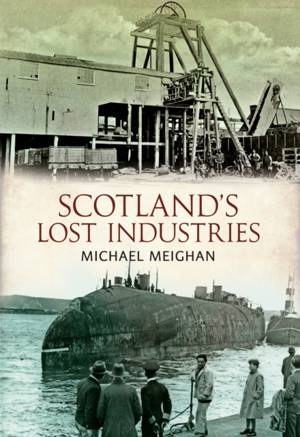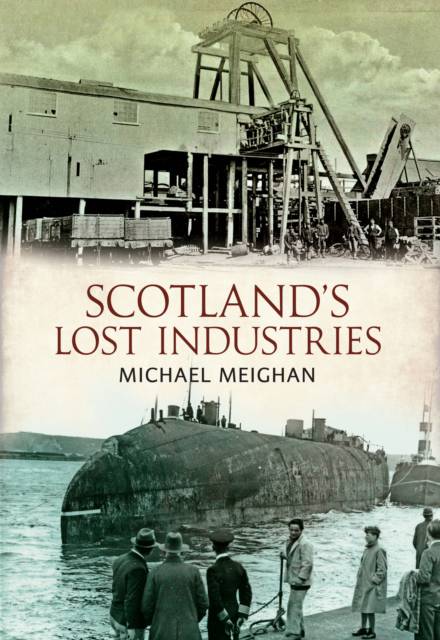
Bedankt voor het vertrouwen het afgelopen jaar! Om jou te bedanken bieden we GRATIS verzending (in België) aan op alles gedurende de hele maand januari.
- Afhalen na 1 uur in een winkel met voorraad
- In januari gratis thuislevering in België
- Ruim aanbod met 7 miljoen producten
Bedankt voor het vertrouwen het afgelopen jaar! Om jou te bedanken bieden we GRATIS verzending (in België) aan op alles gedurende de hele maand januari.
- Afhalen na 1 uur in een winkel met voorraad
- In januari gratis thuislevering in België
- Ruim aanbod met 7 miljoen producten
Zoeken
Omschrijving
Until the 1960's The Clyde was synonymous with shipbuilding with many yards dotted on both sides of the river all the way from Glasgow to Greenock. Today they have all but gone, waterside apartments, exhibition centres and light industrial units taking their place. Scotland has many lost industries - from papermaking to gunpowder making as well as whaling, the motor industry, steel making, coal mining, shipbreaking and locomotive manufacture. Once, Scotland was a heavily industrialized country, making all sorts of industrial goods as well as food stuffs, cloth, coal, quarrying, paper, carpets and other goods. from jam to jute, from motor cars to aeroplanes, from sewing machines to ships, Scotland made them all. Nowadays the majority of industries found in Scotland at the turn of the twentieth century have gone, replaced by newer forms of manufacture - from the drilling of oil to the electronics industry. Michael Meighan takes us on a trip down memory lane, when Scotland was an industrial powerhouse, making goods for the Empire an Commonwealth as well as exporting to the world.
Specificaties
Betrokkenen
- Auteur(s):
- Uitgeverij:
Inhoud
- Aantal bladzijden:
- 224
- Taal:
- Engels
Eigenschappen
- Productcode (EAN):
- 9781445609171
- Verschijningsdatum:
- 15/12/2012
- Uitvoering:
- Paperback
- Formaat:
- Trade paperback (VS)
- Afmetingen:
- 170 mm x 244 mm
- Gewicht:
- 576 g

Alleen bij Standaard Boekhandel
+ 55 punten op je klantenkaart van Standaard Boekhandel
Beoordelingen
We publiceren alleen reviews die voldoen aan de voorwaarden voor reviews. Bekijk onze voorwaarden voor reviews.









